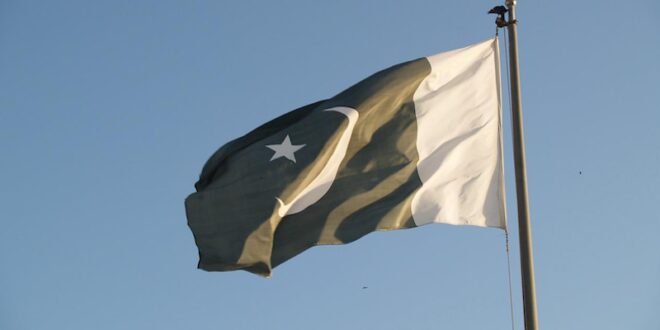Pakistan stands at a pivotal juncture, confronting a complex web of challenges encompassing economic, political, social, and strategic spheres. While neighboring nations, notably India, forge ahead with their economic diplomacy initiatives, Pakistan’s leadership has acknowledged the pressing need for a comprehensive policy framework to diagnose and rectify the obstacles impeding its development trajectory. Under the guidance of Pakistan’s Army Chief, General Asim Munir, the current interim government is demonstrating newfound determination to grapple with these pressing economic concerns.
General Asim Munir, leading Pakistan’s military, has emerged as a driving force behind a series of initiatives aimed at steering Pakistan away from its economic quagmire. One particularly noteworthy event that has captured widespread attention is a high-profile meeting he convened with fifty influential business figures from across the nation. While interactions between the military and the business sector are not uncommon in Pakistan’s political landscape, this particular gathering has ignited optimism for a significant shift in the nation’s economic trajectory.
Tackling the Economic Downturn:
To combat the economic downturn, the Pakistani government is executing a strategy to identify and hold those accountable for precipitating the crisis. This approach includes robust measures to curb illegal activities such as smuggling, money laundering, and political corruption. In the province of Balochistan, the government confronts the rampant smuggling of oil and weapons from neighboring Iran, which has a corrosive impact on the nation’s overall economic stability and the value of the Pakistani Rupee. Following the high-profile meeting, the government initiated a crackdown on money exchangers who had been stockpiling dollars. This concerted effort has yielded promising results, bolstering the value of the Pakistani Rupee against the US dollar. Moreover, General Asim Munir’s diplomatic endeavors to nations including China, Gulf countries, Iran, and Turkey underscore his unwavering commitment to rejuvenating Pakistan’s economy through international partnerships.
A significant highlight of the recent meeting between General Asim Munir and influential business leaders is the potential infusion of substantial investments into Pakistan’s economy. The Army Chief has set an ambitious target of attracting nearly $100 billion in investments, with commitments from influential nations such as Saudi Arabia and the United Arab Emirates. The Saudi Crown Prince, Mohammad Bin Salman, has pledged a substantial $25 billion, with a remarkable $10 billion designated for the State Bank of Pakistan to fortify its reserves. General Asim has proposed that this sum could be repaid in Pakistani Rupees or goods, thereby contributing to the expansion of Pakistan’s foreign exchange reserves.
A central point of discussion during the meeting was the establishment of the Special Investment Facilitation Council (SIFC), designed to streamline bureaucratic procedures and facilitate potential investors. General Asim also hinted at the possibility of significant investments, approximately $25 billion each, from nations like Qatar and Kuwait. This represents a departure from Pakistan’s historical reliance on international financial institutions like the International Monetary Fund (IMF). Meeting participants noted a tangible shift in General Asim’s approach compared to previous encounters. He exhibited unwavering commitment to addressing critical issues, including curbing Iranian oil smuggling into Karachi and combating corruption at all levels of government. Conversations during the meeting also extended to encompass a range of pressing concerns, including strategies to reduce dollarization, the implementation of vital power sector reforms, and initiatives to manage the repatriation of illegal immigrants.
All eyes are now eagerly fixed on the upcoming visit of Mohammad Bin Salman, with high expectations for tangible developments on the horizon. The outcome of this visit carries the potential to reshape Pakistan’s economic landscape in the years to come. While it is acknowledged that some of these proactive measures could have been implemented earlier, there exists a prevailing sense of hope and trust in the country’s leadership as they diligently labor to forge a brighter future for Pakistan.
In conclusion, Pakistan faces formidable economic challenges, but recent initiatives spearheaded by General Asim Munir and the government instill confidence in the nation’s prospects for economic resurgence. These concerted efforts, encompassing substantial investments and comprehensive reforms, have the potential to chart a new trajectory for Pakistan’s economic revitalization and lay the foundation for a prosperous future. The nation stands at the cusp of transformation, where decisive actions today can lead to a brighter tomorrow.
 Eurasia Press & News
Eurasia Press & News




